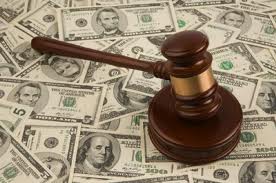Bankruptcy: What You Need to Know
 Are you unable to repay your debts? Do you worry about garnishment, repossession or foreclosure? Don’t panic. You can file bankruptcy to avoid such problematic issues. Federal law, gave right to every individual to file bankruptcy to be relieved from lenders. It is a legal process which helps you start a new financial life. It’s the most effective method to resolve certain financial issues. But however, this is not the only solution to deal with your financial problems or this procedure may not suit every individual.
Are you unable to repay your debts? Do you worry about garnishment, repossession or foreclosure? Don’t panic. You can file bankruptcy to avoid such problematic issues. Federal law, gave right to every individual to file bankruptcy to be relieved from lenders. It is a legal process which helps you start a new financial life. It’s the most effective method to resolve certain financial issues. But however, this is not the only solution to deal with your financial problems or this procedure may not suit every individual.
You need to file the complaint at the right time to get a break from your overbearing financial matters. Time is an important factor when filing for a bankruptcy. For example you need to be very cautious before filing a bankruptcy. Once if you file complain, you cannot make other objection for six years. So before thinking about bankruptcy, approach a familiar lawyer and discuss your situation. Every case may differ and a familiar lawyer may suggest the best thing to do.
Bankruptcy can do
- It may eliminate legal obligation
- It may stop force closure of your property or avoid repossession of your car or it may halt wage garnishments
- Prevents the closure of utility service
- Can get back your driving licence
Bankruptcy cannot do
- It can’t eliminate rights and rules of secured creditors. For instance secured loans indicate mortgage loans
- You may have to pay certain debts like student loans, criminal cases, taxes, tax return, child support, divorce related debts etc.
- It may not eliminate the commitment of co-signer
Types of bankruptcy
There are two types of bankruptcy, you can choose from:
Chapter 7 (liquidation): In this case, you can start a new financial life. All your debts may be cancelled. But you need to pledge valuable properties. This secured property can serve as a proof for creditors so that you can repay the debts on time.
Chapter 13 (reorganisation): If you can surely make your payments on time then you can keep valuable properties such as home or car under this type of bankruptcy which is also known as a wage earner plan. You need to pay arrears in addition to regular payments. You can repay arrears in duration of three to five years.
Types of property you can keep
ü You can keep properties such as home, household furniture, appliances, food, personal properties such as jewellery, wedding rings. Motor vehicle, life insurance proceeds, insurance payments, tools and equipment’s, social security plans etc. These properties can vary from creditor to creditor.
Do you need to go court?
In most cases, creditors will arrange a meeting to discuss the issues related to bankruptcy. The agent may ask you certain questions such as name, address, duration of stay etc. There is no need to worry and your case can be completed within 4 to 6 months.
Cost of bankruptcy
Courts will charge the amount for filing your complaint. Fee varies from chapter 7 to chapter 13. Chapter 7 costs $200 whereas chapter 13 costs $185. There is no fee for getting your case filed; you need to pay the minimum payment within the given duration. It is your responsibility to pay your advocate’s fee.
Before taking any kind of debts have payment protection insurance linked with them. This helps you in case of emergency situations. You can refund amount using ppi claims which can be used to make timely payments to avoid bankruptcy situation.
Category: Bankruptcy





